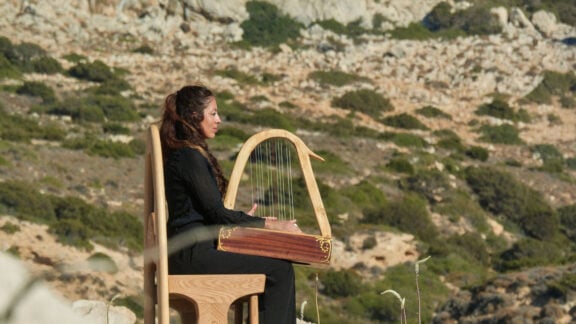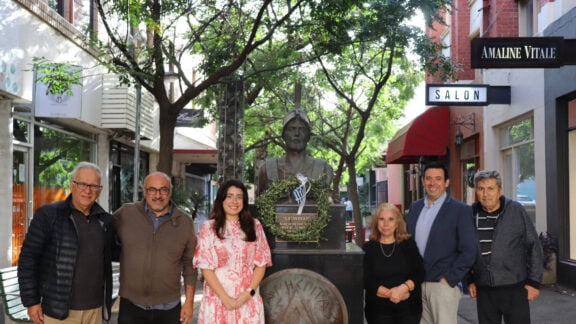A clinical trial has been launched at Sydney’s Children Hospital, Randwick, aimed at treating children with ependymoma – a rare and devastating form of paediatric brain cancer.
The Deflexifol® At Relapse Trial (DART) is supported by Kids with Cancer Foundation and is being led by Professor David Ziegler and Dr Marion Mateos at the Kids Cancer Centre (KCC), with their hope being that this can be proven a viable treatment for children or adolescents with relapsed ependymoma.
“Ependymoma is quite a rare cancer in children. It is very rare but it is a disease that we need better treatment for,” Dr Mateos told Neos Kosmos.
The disease currently has two treatments available which are surgery to remove the tumour and radiation therapy, though these still come with considerable risk.
“What is challenging, however, is that the treatment does depend on where the location of the tumour is and whether you can take the tumour out safely and in its entirety,” the paediatric oncologist with the KCC at Sydney’s Children Hospital.
Dr Mateos added that due to the delicate nature of the brain, the location of the tumour is sometimes somewhere wherein they cannot remove it completely or, in other cases, it could have already spread and become metastatic.
“These are the sorts of children, teenagers, young adults, who have more difficult cases at the moment that certainly need better treatment and we need to be developing more novel therapy options that are reliable,” said the clinical research fellow at Children’s Cancer Institute.
The trial is especially being targeted at helping those whose ependymoma has come back and, currently, almost all children or adolescents with relapsed ependymoma die.
“There are some sub-types of ependymoma that are more aggressive and they are the ones that unfortunately tend to come back, not in all cases but in a number of them, and when they recur, we don’t have an effective enough treatment currently to deal with it,” Dr Mateos said.
The trial is testing Deflexifol® in treating ependymoma in children, with it expected to be a less toxic and more effective treatment plan compared to those currently available.
“It’s a novel therapy that is a combination of two main ingredients. The first ingredient is an active chemotherapy agent called 5-Fluorouracil and the other ingredient is something called leucovorin,” Dr Mateos told Neos Kosmos.
The Clinical Academic at the University of NSW elaborated that early findings from a similar trial in adults showed that using the combination of these two ingredients increases the effects of both drugs with fewer side-effects.
“There has been a clinical trial done with relapsed adults who are in advanced stages of a relapsed ependymoma…in 2/3 of cases the disease has stabled.”
Dr Mateos is hopeful that this clinical trial will offer similarly positive results, explaining that in the trial, the drug will be administered intravenously and given to patients in fortnightly intervals for the period of the trial which is estimated to be roughly one year.
It is being funded by the Kids with Cancer Foundation, who have pledged more than $1,200,000 to Sydney’s Children’s Hospitals Foundation to cover five-year funding for the DART National Sutdy Coordinator and research costs, all to aid this research.
“The financial support from the Kids with Cancer Foundation is what has really allowed us to get the trial up and running. They provided support for a national clinical trial coordinator who has been of great assistance. She helped me put together the clinical trial protocols which I wrote with hers and Dr Ziegler’s input,” Dr Mateos said.
The trial is operating at the Sydney’s Children Hospital, with support from the Cancer Institute NSW, as well as other foundations, something Dr Mateos was sincere grateful for.
“We’re really pleased that we’ve gotten additional support from other organizations such as the Australian and New Zealand Children’s Haematology/Oncology Group (ANZCHOG) and the Robert Connor Dawes Foundation,” Dr Mateos said.
“It has really allowed us to get this trial off the ground and we could not have been able to do it without their ongoing support, both financial and otherwise.”








